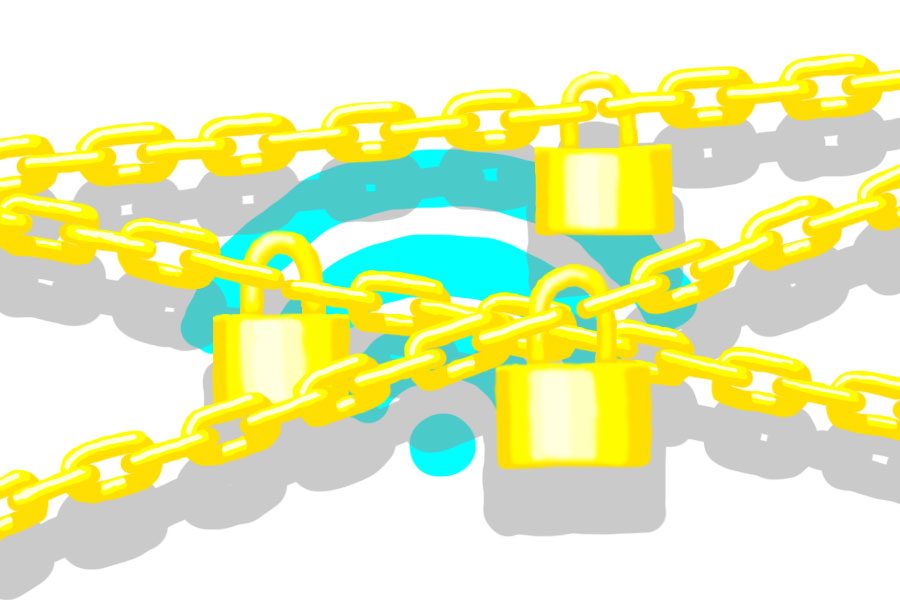Without Net Neutrality, Internet Service Providers Have Too Much Power
Published: February 28, 2018
The Federal Communications Commission voted to repeal net neutrality, because massive internet service corporations who directly profit from abusing their effective monopolies over their service are the best group to regulate the internet.
That was sarcastic.
Letting entities primarily focused on profit that are willing to stretch law and morality into taffy control the internet is a terrible idea. Unless you’re an internet service provider, or ISP. Then it is a wonderful market opportunity and everyone who says otherwise is an innovation-hating socialist.
Net neutrality is the idea that all data on the internet should be treated equally when carried over the internet. It ensures that the internet is for the most part a fair and equal place for its users. It prevents censorship by making sure data from all sources is treated equally, and not blocked or slowed. For most of its history, the internet followed the principles of net neutrality. Its ability to access any source of data without interference is the reason the internet exists as it does today.
Without net neutrality, ISPs will be able to pick and choose what data they want to carry and how quickly. ISPs could force users to pay a toll to be able to connect with the internet at currently available speeds, and slow or even block users’ connections if they don’t pay a premium. Many small businesses rely on the internet to reach customers; a high toll requirement to use the internet is an obstacle to small businesses and could prevent them from functioning. ISPs could line their pockets by limiting the growth of the economy. They could also use this ability to block websites from their users, preventing their competition from reaching customers.
According to the website savetheinternet.com, “Without Net Neutrality, ISPs could block speech and prevent dissident voices from speaking freely online,” manipulating politics by blocking the sites of groups that they don’t support, essentially censoring them. Such actions, if done by the federal government, would be considered a violation of the First Amendment, as it prevents citizens from communicating freely. Corporations are not part of the government, however, and do not have these legal limitations.
On Dec. 14, 2017, the Federal Communications Commission decided to abolish policies that protect net neutrality, going against public, widespread bipartisan support. In a June 15-19 Morning Consult National Tracking Poll, 56 percent of voters identified as conservative and 72 percent identified as liberal supported net neutrality. However, positions on the FCC are not elected: they are chosen by the president and are not subject to the checks and balances Congress is affected by. The FCC is an independent agency, and there is very little other parts of the government can do to stop the FCC once its members are in place. The Senate can vote to stop the repeal, at which point it would go to the House of Representatives for a vote, and then to the president. With a Democrat minority in Congress and Trump as president, though, this is extremely unlikely. Individual states are now trying to create their own net neutrality laws and suing the FCC for repealing net neutrality regulation. However, the order prevents states from making their own regulations, instead requiring all of the U.S. to use a “uniform set of federal regulations.”
Currently, voters can either wait for one of the members of the FCC to leave and for a new president to appoint different people, or write to their senators to show support for repealing the FCC’s actions. Politicians are allergic to losing voters; it causes them intense mental and emotional distress. Please threaten them with abandonment to force them to act.







![2025 Snowcoming Pep Assembly [Photo Gallery]](https://FHNtoday.com/wp-content/uploads/2025/03/IMG_9969-300x200.jpg)
![2025 Snowcoming Dance [Photo Gallery]](https://FHNtoday.com/wp-content/uploads/2025/03/Snowco2025-Hmartin-3-300x200.jpg)
![Girls Soccer Holds Fourth Day Of Tryouts [Photo Gallery]](https://FHNtoday.com/wp-content/uploads/2025/03/AOrozco_Soccertryouts_3.6-20-300x200.jpg)

![Baseball Holds Their Last Day of Tryouts [Photo Gallery]](https://FHNtoday.com/wp-content/uploads/2025/03/baseball-tryouts-3.7-austin-griffin-11-300x200.jpg)


